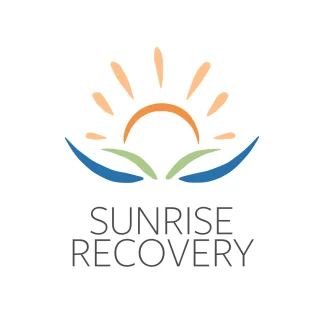Seven Counties Services - West Broadway
Seven Counties Services – West Broadway is a non-profit rehab located in Louisvi...
Sunrise Recovery specializes in the treatment of Drugs and Alcohol detox. We focus on wide varieties of scientific approaches, customized for best individual results. Supported by experienced therapist, Addiction specialist MD, peer recovery coaches. Fair number of staff have been in extended recovery themselves and understand what recovery means.
We are Joint commission accredited recovery care center in Southern Indiana that focuses on the wide variety of individualized approaches towards treatment services for our patients. At Sunrise Recovery, we understand and value the life of our patients who come to us for problems. Everyone in life deserves a second chance to break free from the chains of addiction. We, therefore, not only provide life-transforming treatment but also aid our patients with sobriety, aftercare and job finding thru our partnerships with local businesses. Our mission is to bring in a new beginning to our patients with medical and behavioral health care in a residential and outpatient program. Significant proportion of our staff, themselves have been in extended recovery themselves and understand the pain of others, going thru similar issues, and are extremely supportive thru out recovery process.
Contact us for more information: (812) 924-7547

Connect with Sunrise Recovery by calling their admissions team directly.
(812) 924-7547 Website Get DirectionsThe Joint Commission, formerly known as JCAHO, is a nonprofit organization that accredits rehab organizations and programs. Founded in 1951, the Joint Commision's mission is to improve the quality of patient care and demonstrating the quality of patient care.
Joint Commission Accreditation: Yes
State Licenses are permits issued by government agencies that allow rehab organizations to conduct business legally within a certain geographical area. Typically, the kind of program a rehab facility offers, along with its physical location, determines which licenses are required to operate legally.
State License: Indiana License Number: 1828-1-SUB
Research clearly demonstrates that recovery is far more successful and sustainable when loved ones like family members participate in rehab and substance abuse treatment. Genetic factors may be at play when it comes to drug and alcohol addiction, as well as mental health issues. Family dynamics often play a critical role in addiction triggers, and if properly educated, family members can be a strong source of support when it comes to rehabilitation.
Group therapy is any therapeutic work that happens in a group (not one-on-one). There are a number of different group therapy modalities, including support groups, experiential therapy, psycho-education, and more. Group therapy involves treatment as well as processing interaction between group members.
In individual therapy, a patient meets one-on-one with a trained psychologist or counselor. Therapy is a pivotal part of effective substance abuse treatment, as it often covers root causes of addiction, including challenges faced by the patient in their social, family, and work/school life.
Group therapy is any therapeutic work that happens in a group (not one-on-one). There are a number of different group therapy modalities, including support groups, experiential therapy, psycho-education, and more. Group therapy involves treatment as well as processing interaction between group members.
In individual therapy, a patient meets one-on-one with a trained psychologist or counselor. Therapy is a pivotal part of effective substance abuse treatment, as it often covers root causes of addiction, including challenges faced by the patient in their social, family, and work/school life.
In individual therapy, a patient meets one-on-one with a trained psychologist or counselor. Therapy is a pivotal part of effective substance abuse treatment, as it often covers root causes of addiction, including challenges faced by the patient in their social, family, and work/school life.
Seven Counties Services – West Broadway is a non-profit rehab located in Louisvi...
Oxford House Abbeywood, located in Clarksville, Indiana, is a democratically run...
University of Louisville - Physicians Outpatient Center is located in Louisville...
Kentucky’s Louisville Addiction Center is a premier drug and alcohol rehab for a...